Twenty years after leaving Topeka, Menninger's looks to build on mental health reputation
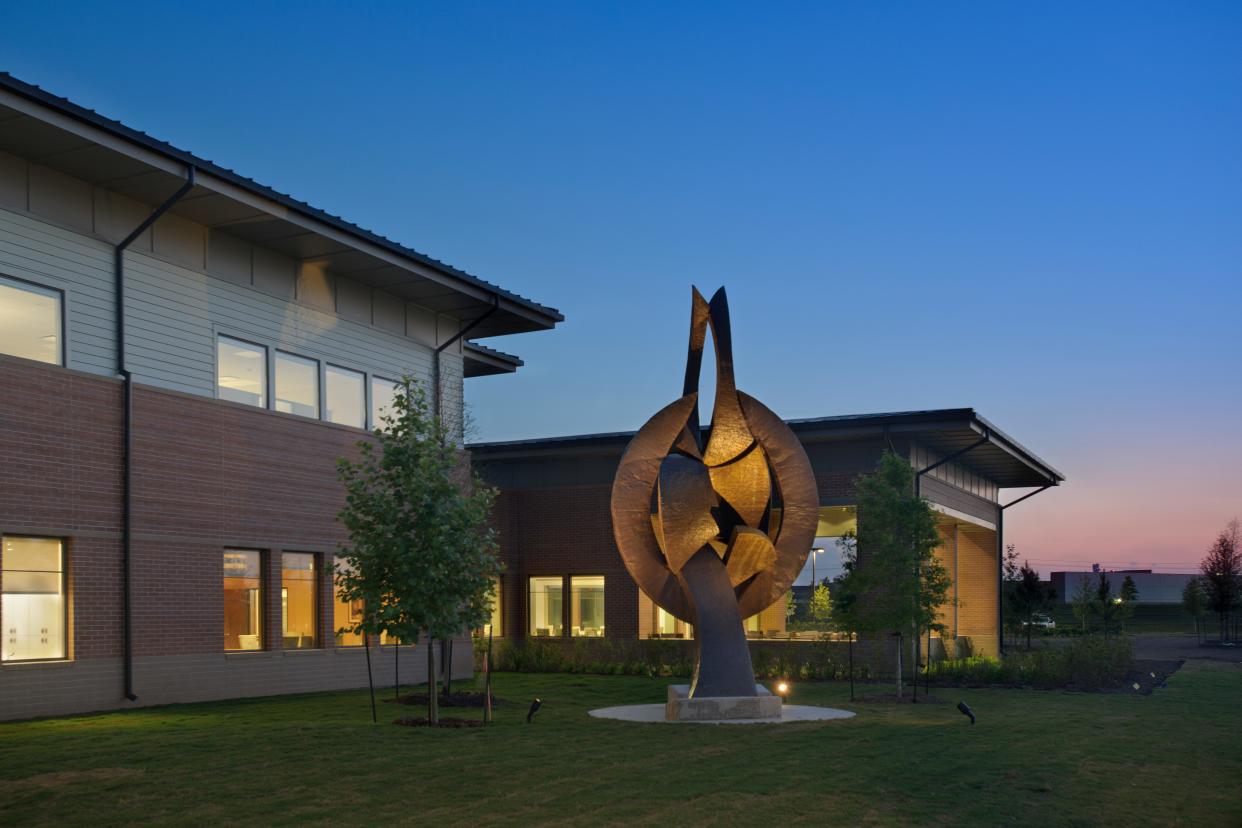
This week marks 98 years since a patient first stepped into an old farmhouse in Topeka, marking the beginning of one of the world's most well-respected and influential leaders in modern mental health care.
It was 1925 that C.F. Menninger and his sons, Karl and William Menninger, first began seeing patients in their clinic. The family of psychiatrists became renowned for their holistic approach to mental health, unheard of at the time.
More: Topekan Karl Menninger changed how society views the mentally ill
Thousands of patients from around the U.S. and world came to "tiny" Topeka throughout the 20th century to see the practice, and several of the world's leading psychiatrists and mental health experts also received their start through the family.
Although Menninger's ultimately moved to Houston 20 years ago this June in pursuit of better prospects, the foundation's and family's legacy in Topeka lives on. Representatives from the foundation, as well as former Topeka mayor Larry Wolgast and surviving and local members of the family, will gather across Evergy Plaza on Tuesday to honor that legacy with the unveiling and dedication of a new "pocket park" along Kansas Avenue.
The small, plaza-like area will include a life-size statue of C.F. Menninger, in addition to a tablet of Menninger history and busts of him, his sons and grandsons. Wolgast has been working to get the pocket park off the ground since before COVID, but the pandemic delayed completion of the project.
More: Statue of mariachi legend Teresa Cuevas will soon join these figures across Topeka
In reflection on the legacy of Menninger's on Topeka and vice versa, The Capital-Journal visited with Armando Colombo, president and CEO of the organization since 2019. During his tenure and throughout COVID, Colombo has helped expand the organization's offerings, and he regularly travels to Topeka to meet with a remaining board of Kansas residents.
This interview has been lightly edited for clarity and length.
It seems hard to separate the histories of Topeka and Menninger’s throughout much of the 20th century. What role do you think Topeka played in making Menninger’s the organization it is today?
Colombo: It’ll be 98 years ago this week that the first patient was admitted to Menninger at the old farmhouse. I think we've maintained and built off of the values that doctors C.F., Carl and Will Menninger and then later Roy and Walt instilled in the organization — values of excellence, teamwork, hope, integrity and caring. They really put together what I call the three legs of mental health care: research, education and patient care.
Certainly, the legacy of education and patient care has continued. In Topeka, they trained hundreds and hundreds of psychiatrists and psychologists. We've continued to do that here in Houston with our partner, Baylor College of Medicine.
We're expanding our research footprint. When we moved, we really could only take the inpatient units, because you obviously can't pick up and move outpatients. But with those 29 patients and 80 or so staff members who got on the plane that day and came here, we've now started to build a larger footprint here in Texas that we hope will mirror some of the things that were done in Kansas with inpatient acute care, residential, partial hospitalization, intensive outpatient, real outpatient, community involvement.
All of those are things that, when I look back at the history in Topeka, were really the first model of modern mental health care, where you have all of the pieces of that continuum. Our vision here in Houston is to recreate that and continue that legacy for another 100 years.
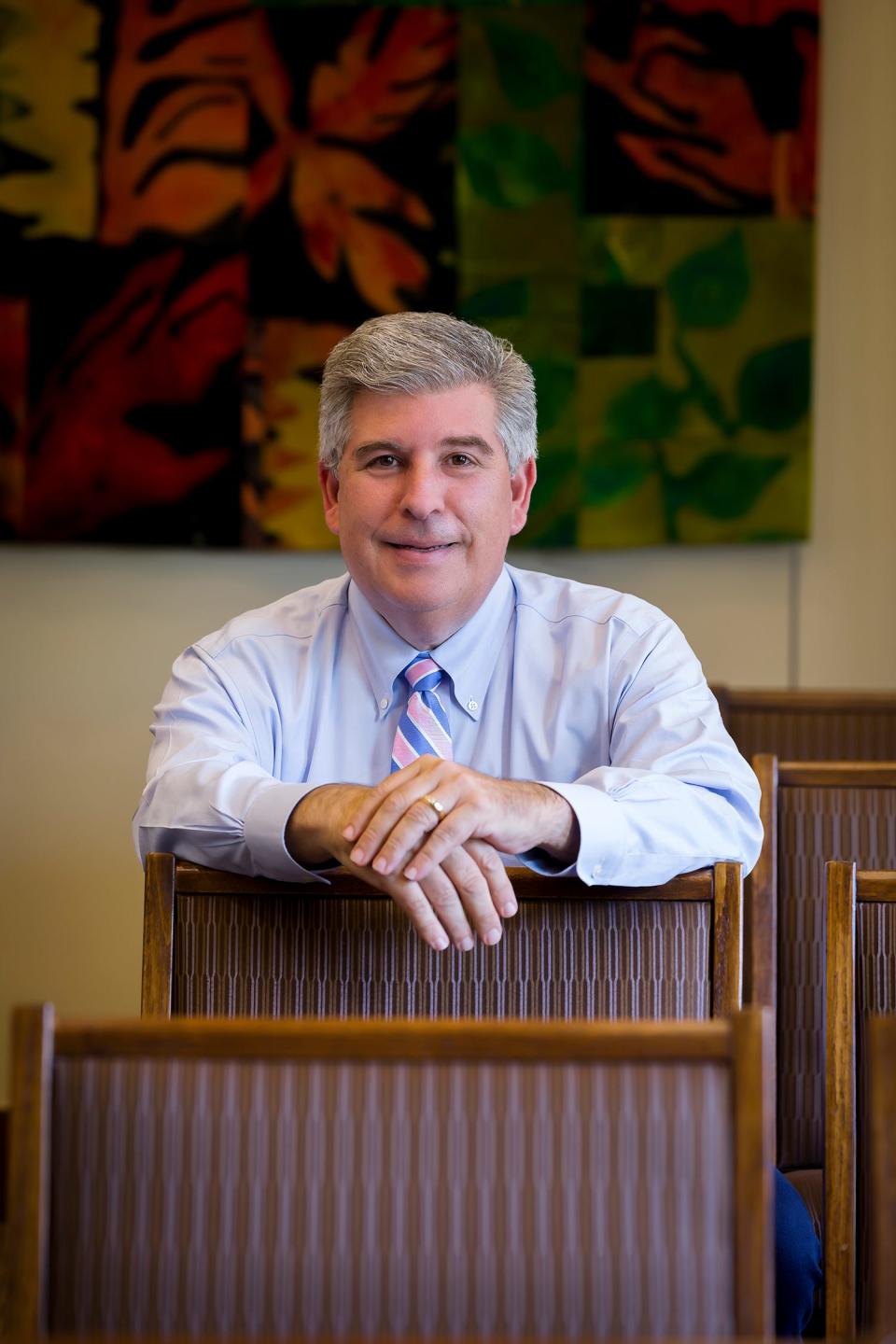
A lot of Topekans fondly remember Menninger’s legacy here in the capital city. What kind of update would you give them on where the organization is at now and the type of work it’s doing?
Colombo: The history of Menninger’s in Topeka and the great need for mental health services continues to inspire us here in Houston as we continue on the name of The Menninger Clinic in expanding clinical programs that offer the right care for every adult and adolescent.
Since moving here, we've added unique inpatient-outpatient assessment programs and community integration programs. Last September, we opened a 31,000-square-foot brand new outpatient building that has a state-of-the-art sleep medicine lab. We have the Center for Brain Stimulation that encompasses electroconvulsive therapy, transcranial magnetic stimulation and a ketamine clinic.
We're opening a residential program here on campus at the end of May, and that will then lead to a day treatment program for adolescents. We’re in the process of fundraising for the Center for Addiction Medicine and Recovery, which will be a state-of-the-art center here on campus.
More: Here is how Missouri-based company plans to develop Topeka's iconic Menninger Clock Tower
We've acquired an intensive outpatient program in Dallas to expand our footprint here in Texas and help more folks. And I'm extremely proud of the fact that we are now expanding to have insurance offerings here at the clinic. When the clinic first moved to Houston, we pretty much had a self-pay model where we didn't accept insurance, and in order to reach more folks, we're now expanding contracts with three or four major insurance companies that are in the works.
One of the things we're most proud of is we just partnered in the past few months with Texas Children's Hospital, one of the best in the country, to expand and open a 12-bed short-term stabilization program for all children and their patients. They saw an 800% increase in emergency room activity for adolescents with mental health needs during COVID, and that has continued, so we partnered with them.
I think it's maybe the first time two top hospitals have partnered to really try to solve a problem in our community, which was the need for services for these kids. That launched in the last month or so, and so far, so good.
What do you think has changed about the field of mental health care in the 20 years since Menninger’s moved out of Topeka?
Colombo: There are many more choices than there were 20 years ago. I think that the quality organizations continue to define and identify evidence-based approaches to help folks that are struggling with mental illness.
I think the addiction space has dramatically changed from maybe a stigma standpoint, to some extent. I think it's less, but I still think there's stigma out there. I think organizations are making a difference in that.
I also think the opioid epidemic has changed the landscape. We, as an industry, need to get better at alernative treatments. One of the things I love about the Menninger Clinic is that we're not a one-size fits-all organization. There are alternatives to help people that we know work. It's about creating programs for meeting patients where they are, as opposed to labeling patients into any particular categories.
That's where the industry and mental health care have changed. We, as an industry, are getting more creative. The challenges continue to be parity, from an insurance standpoint, breaking down the stigma and understanding that with folks suffering from mental illness or substance use disorders, it's not a moral failure. It's a disease, just like any other.
And we should be able to take care of folks with a mental illness or substance use disorder, just like when you take care of people with an orthopedic disorder, a cardiac disorder or cancer.
I think that's getting better. Although people think mental health care needs surged during the pandemic, it was probably always a challenge. The pandemic put it on the front page of the paper, because we were all isolated and locked in our homes. Many people were. COVID exacerbated mental health needs, but I think it has been a continual challenge over the last 20 years.
Throughout its first few decades in Topeka, Menninger’s was very distinguished by that holistic approach to mental health care, as you mentioned. After setting that as the standard of care, how does Menninger’s now make a name for itself in the broader field of mental health care?
One of the things that we pride ourselves in is being creative and meeting patients where they are. While we have defined programs, we’re flexible, and we create individualized care.
The research is something that can differentiate us. For instance, we are looking at wearable technology, in conjunction with sleep. We find that about 90% of our patients who are admitted have some kind of sleeping disorder, whether that be nightmares, insomnia, sleep apnea — something to do with sleep.
We also know that improper sleep hygiene, or not having great sleep hygiene, is a leading cause of suicide. So how do we think about different ways to monitor folks so that we are not disrupting their sleep? Because in a psychiatric hospital, you check on people a lot.
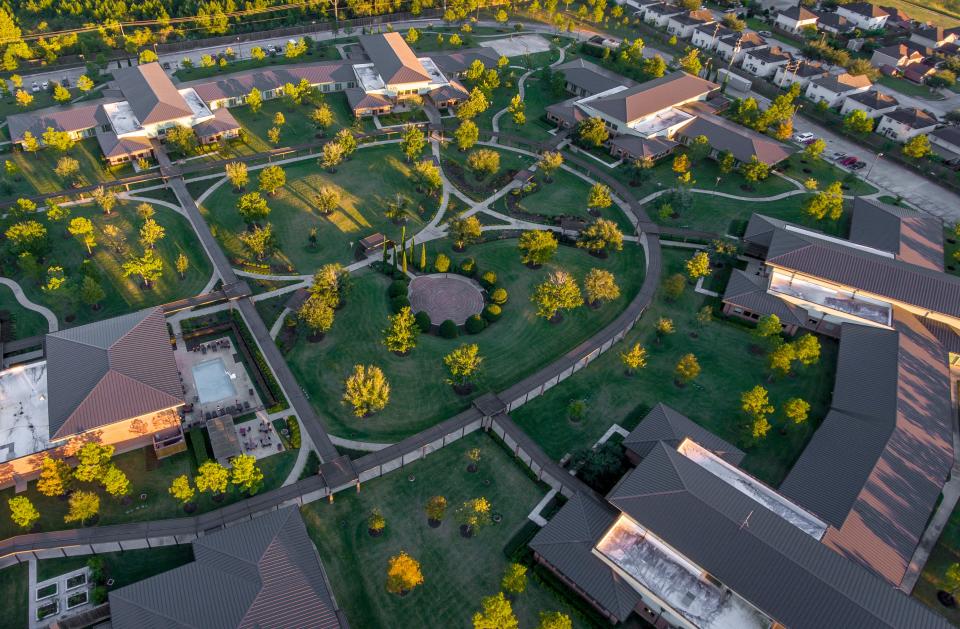
We’re experimenting and testing some wearable technology that will allow us to change the way that monitoring happens, so we can allow people to get the rest that they need and help them get better sleep hygiene. We're using innovation and modern technology, similar to an Apple Watch or Fitbit, that allows us to monitor certain things and create algorithms that allow us to better care for patients without disrupting them.
In addition, we're looking at virtual reality models for substance use, which is an experiential treatment. We're looking at that, in combination with medication and behavior modification, how that can impact one's ability to recover from substance use disorder. We're also looking at different modes of brain stimulation services in order to help those that are suffering from persistent and treatment-resistant depression, where nothing has worked for them.
That's where we're going from a future standpoint — how do we create and innovate through our relationship with Baylor College of Medicine and our research arm in a way that translates to patient care?
All that makes you wonder what Dr. C.F. Menninger would say if he could see the kind of work being done, still under his name, today.
Colombo: I would say that through the voice of Roy and Walt Menninger — who are still involved from a board member perspective — that they’re really excited when I share some of these projects with them.
I see the smiles, and a sense that what we’re doing brings in the spirit of what we did here in Kansas during those early days of creating and pioneering different things.
We’re bringing that spirit to Houston through the Menninger and continuing that, hopefully for a long time.
What place do you think Menninger’s has in Topeka’s history? What would be in the chapter about Menninger’s in a Topeka history book?
Colombo: The words that come to mind are “pioneering,” “thought-leader.”
When I think back about the history, thousands of people traveled to this small Midwestern town and were welcomed with open arms to help them get better. I mean, people took trains. People came from Europe. Physicians came from all over the country and the globe to be trained by the Menningers in Topeka, Kansas. So I think this pocket park will help remind people of the legacy and the beginnings of Menninger’s.
There's a level of respect that Topekans can be proud of in the legacy that the Menninger’s left.
I know that there's probably some sadness and disappointment that the organization is not there anymore. But I think Topekans can celebrate that they gave a gift to the rest of the country and the mental health industry, because of what started there.
You mentioned that while mental health awareness and advocacy has come a long way, there still remains a lingering stigma. What work remains to overcome that and have mental health become a topic that can be talked about honestly and openly?
Colombo: The more that people in the industry and people who have had experiences with mental illness and substance use disorder, whether they be executives, athletes, actors, actresses and regular people — the more that we can allow them to have a voice and talk about their story, I think that helps people become more comfortable.
I have this thing I do at orientation here with our new employees, where I ask them to find their story and share it in a way that impacts the lives of others. We all take a minute and think about who we know who has had a substance use issue, has had a mental health issue, who has unfortunately committed suicide or been struggling with a substance use issue for a long time.
These issues have impacted almost everyone I know, and being open about those conversations and having the ability to talk about it, I think, is the best way to break down the stigma.
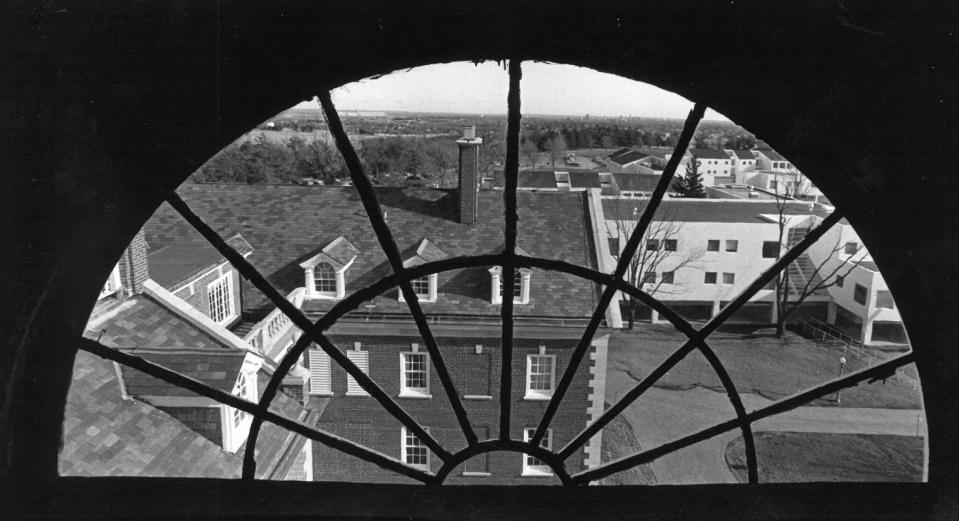
I think a lot of folks don't seek treatment because it would totally disrupt their life, so how do we create, again, opportunities to meet them where they are? That could be meeting patients in alternative settings, like telehealth or virtual reality. Maybe it’s intensive outpatient care that happens from 6 to 9 p.m. vs. 8 a.m. to 5 p.m., when people are working.
It’s creating access that can be just like going to the gym. We ought to be able to seek mental health care and substance use treatment here just like we go to the grocery store, and just like we go to the gym. Just like we go to church, or just like we go to an orthopedic or primary care doctor.
As we continue to have these conversations and create alternatives and do research and find evidence-based treatments that we can do in alternative settings, I think then we really have something.
More: Menninger leaves lasting mark on Topeka
Not to be too premature, but you guys have a big celebration coming up in 2025 — the 100-year anniversary of the opening of the original clinic. What do you see for the organization’s next 100 years?
Colombo: My vision is to ensure that The Menninger Clinic and the Menninger name continue to serve as many people and as many patients suffering from mental illness and substance use as we can.
Continuing to be a thought leader, a leader in training and education and research, obviously, are our mainstays. But I think for the Menninger Clinic here in Houston, it’s about expanding our footprint to not only other cities in the state of Texas but other cities around the country.
It’s about becoming a model for other programs and systems on how to treat mental illness, and how to treat it and the most respectable, evidence-based way, while at the same time, being innovative and creative in how we do that.
What else would you want Topekans to know about Menninger’s ongoing work in mental health care?
Editorial: Topeka will always be proud of Menninger's legacy
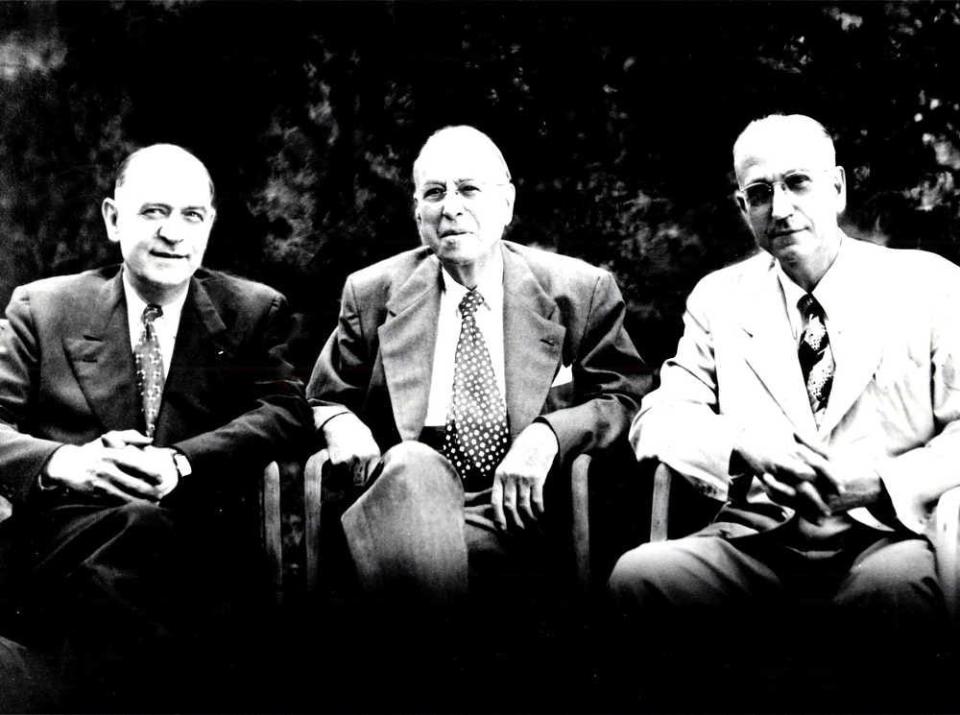
Colombo: The 475 staff members here in Houston are extremely proud of the legacy that we continue to carry on that was started by the Menninger family in Topeka. And although we're not in Topeka, I think the spirit of what started in Topeka has continued to thrive here in Houston.
If I wanted Topekans to know something, it would be that we are very proud of what was started in Topeka. And we want to continue to make the folks from Topeka who have a connection and started this to continue to be proud of us as we carry on the Menninger name.
Armando E. Colombo is president and chief executive of The Menninger Clinic in Houston, Texas.
Rafael Garcia is an education reporter for the Topeka Capital-Journal. He can be reached at [email protected] or by phone at ?785-289-5325. Follow him on Twitter at @byRafaelGarcia.
This article originally appeared on Topeka Capital-Journal: Menninger Clinic's Topeka legacy honored with downtown pocket park
